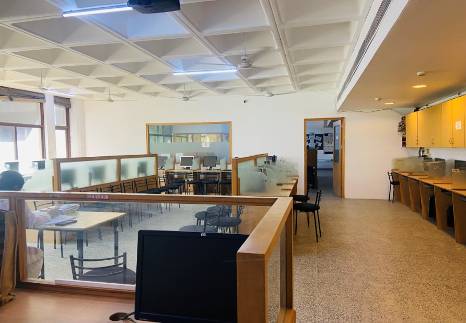Labs
Objective of Language Labs for professional courses
The Department of Humanities has two Language laboratories. The communication Labs provides opportunities to the students to learn the nuances of languages to meet the needs of the global work culture. The Language laboratory does not only help to improve the four basic language skills: listening, speaking, reading, and writing but also offers students a platform to apply the language skills to promote their technical/scientific competence. To create and sustain a dynamic and inclusive intellectual department with an environment that fosters the acquisition of scientific knowledge and communication skills about technical communication and advocates improving Technical English through functional diction.
The Lab Layout: Capacity of 30 students X 2 Faculty members in each Lab
Timing: 9:00 AM – 5:00 PM on all days from Monday to Friday except weekends & National holidays
The Language Laboratory caters to different activities for the students:
- Multimedia Laboratory: Powered by English Comprehension software, Video and Audio activities. This is a self-learning space where students work on different aspects of language acquisition they want to enhance.

Discussion Lab
- Students would get enhanced in reading skills & understand the text better after conscious acquisition of techniques, methods and processes of reading.
- Students are being acquainted with dimensions and forms of speech of English language and would be able to exert fluently discerning the aspects of sounds, lexicon, syntax and semantics English holds.
- Students focus on the basics of listening skills, the levels & processes of listening thereby enabling them to capture the language (English) being used in real life context.
- Students would be able to create adequate base in vocabulary building skills as well as in scientific writing skills.
- Students would apprehend upon the cognitive competence of communication skills.
- Students would assimilate the art of communication skills not only for the sake of lifelong learning but also for the sake of conscious and meticulous execution in practical life.
